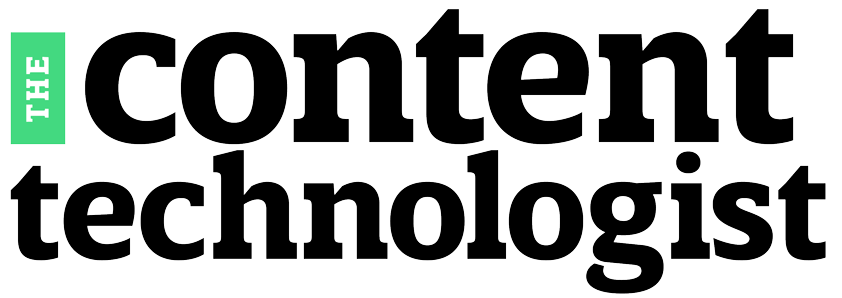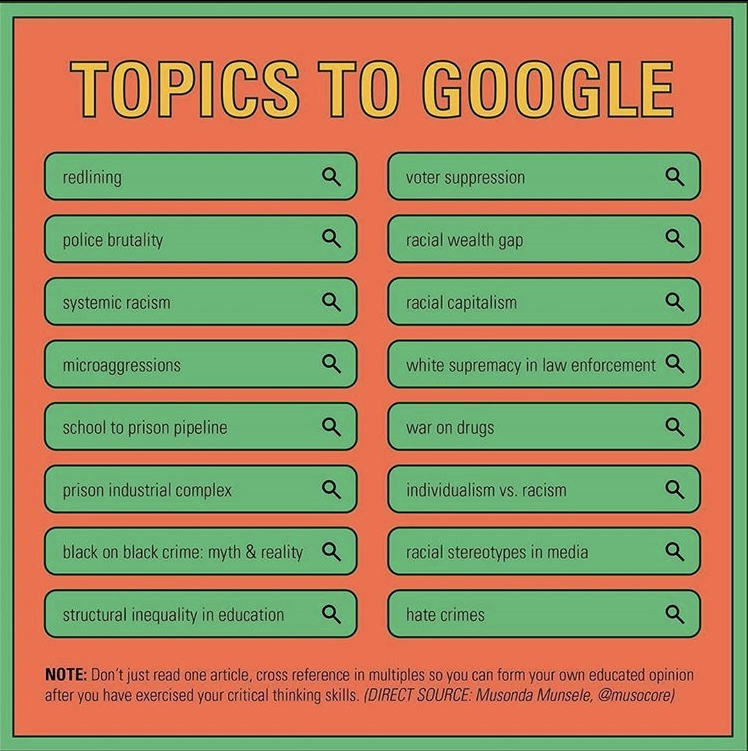This essay originally was published on January 14, 2021, with the email subject line CT No. 98: "DAOs, Web 3 and 14 bosses" alongside a review of interactive content builder Shorthand.
Minneapolis has a weak mayor. Technically, that's the term. In my city's strong council system, a 13-member city council manages all but one of the city's public agencies, drafting and enforcing policy, appointing department heads, enforcing laws and holding department heads accountable. The strong council oversees individual departments through subcommittees, each comprising some of the council's 13 members.
The weak mayor proposes budgets, reviews and approves council policies, ensures laws are enforced, appoints staff, and sets the priorities, tone and direction of city governance. In the current system, he operates more like a board member than an executive, from my understanding: a guiding force and a check, but lacking the unilateral authority to make decisions for the city.
With every member of the city council as well as the mayor seeking reelection every 4 years, all with constituents in varying shades of what's considered Left, the strong council-weak mayoral system currently exacerbates many, mostly because Minneapolis residents are extraordinarily frustrated/traumatized by the past two years. We're frustrated by the Minneapolis Police Department, crime, one of the largest racial wealth gaps in the country, a growing unhoused population, and laundry lists of ways that the city system has failed its residents. We espouse progressive politics and love our democratically elected council system, but unless you're living in the wealthiest neighborhoods or are living by the credo "fuck you I got mine," it's been a hard couple of years.
The case of the 14 bosses
A common rallying cry for a stronger mayoral system—on our city ballot via referendum in November—is that city employees have 14 bosses, so they can't get anything done. Whereas, in the alternative, executive authority is concentrated in the hands of the mayor. Our twin city, St. Paul, has a stronger mayoral system and on its face seems to get more done, at least from our side of the river.
Based on a study from our city's charter commission, city governance does indeed sound like a workplace shitshow, where employees attempting to enforce policies can't find support or authority to actually, y'know, enforce the policies. Who is in charge is a constant question.The system of distributed authority, with the threat of elections every four years, feels unstable, unproductive, unreliable.
If you know anything about the past couple of years in Minneapolis, you may think that I've left out some crucial details. That's because I have, for the sake of argument. Stick with it, I'll get to those details soon.
If you want more info, here are some better explainers of this system and the issue at hand.
- Star Tribune, billionaire-owned, center right but depends on the reporter
- MPR, nonprofit & donor-funded, center right across the board
- Sahan Journal, nonprofit, left, focus on immigrants
- Minnesota Reformer, nonprofit, left
First I want to consider distributed authority in Web3 terms.
DAOs and decentralization
If you're not familiar with the discourse around Web3, or you think NFTs, DAOs and all things crypto are just a bunch of ephemeral acronyms that will fade from style in five years, I am in partial agreement. I too think that most of this whole Web3 thing feels like gambling, like a hustle, like concepts that have minimal impact on my ability to pay rent. But with the amount of investment swirling in crypto and ample discourse from everyone with the spare time to develop an opinion, it's worth considering the core concepts as they may play out in the real world.
Web3's core concepts center on decentralized systems, supported by cryptography. It's not dissimilar from open source web development, but with some giant energy-sucking computers creating uncrackable codes behind it, making the whole thing far more secure and less malleable. The promise of Web3: Any individual with an internet connection can create an artistic asset (NFT) or join with others to form a decentralized autonomous organization (DAO) to make a living, away from banks, away from the constant crisis of our existing, broken, fallible human systems.
DAOs interest me the most, since I'm a champion of collaboration and collective decision-making. I'm always looking for new business models that don't place so much responsibility on individual leaders making decisions that impact a large amount of people. From my understanding, DAOs pile financial stakeholders, executives and workers in one organization with crypto-powered smart contracts, enabling them to vote, Reddit-style, on rules or investments or other governance issues.
In theory, DAOs distribute decision-making authority, enabling everyone who worked or paid their way into the system to have a voice.
(There's also a gamification element to DAOs that I don't fully understand or support, so not discussing here. In general, I don't think adults should be required to compete for a halfway decent life.
Also not even touching that crypto is horrible for the environment.)
For more on DAOs, check out these explainers.
How does decentralized authority make decisions?
Through the terms of each smart contract, each DAO determines the criteria for organizational decision-making. Are changes made when a majority of stakeholders vote for something, or just a plurality? What issues require votes to begin with? The smart contract (only called smart because it's encoded, not because it's capable of making decisions on its own) defines those terms. Once you've thrown your contribution into a DAO, in an investment of either time or money, you get voting rights on everything votable.
Because DAOs use crypto/blockchain, stakeholders can also ostensibly see a record of how every decision was made and who made that decision. Inherent record-keeping and archiving is a benefit of creating unique, workable code.
The legality of DAOs is debatable, as is its effectiveness. The most prominent DAO ever, called The DAO, was a Titanic-like organization based on Ethereum that failed miserably because it was hacked. But the concept is sexy: what if we all shared in authority, in decision-making, and accountability.
It's almost like it's democracy. For those of us repulsed by top-down authority, DAOs feel particularly promising.
When I read about DAOs, I think only of the Minneapolis City Council and mayor, of all the people in power crying out "with 14 bosses no one can get anything done!"
And I know that's not true either.
All the wrenches in all the systems
Part of the problem with both Web3 systems and Minneapolis' strong council system is that despite all the clever acronyms and contracts (DAOs) and public meetings and charters (Minneapolis), what appears to be distributed power is actually concentrated in the hands of the few who have wealth and privilege.
In the case of DAOs, that comes in the form of vocal stakeholders with excessive wealth and free time. Because DAOs live and are organized primarily online, the folks who have the most time to devote to administration and understanding the DAO system would effectively be the most influential. If you study the system and learn to exploit it, pulling votes or influence, you'll be able to concentrate power. If you're simply a maker who cobbles a living from building things rather than administering or analyzing them, or even someone not included in the DAO who is impacted by its decisions (externalities are real!), you likely have less of a voice than you'd expect. The tech investors and graduate students who have the time to burn "researching" decisions and influencing the DAO hold the power.
In the case of Minneapolis, I mentioned that our city council has governance of all but one city department—the department that spends the most money and puts the city in headlines, the Minneapolis Police Department. According to our city charter, the weak mayor is in charge of the MPD.
Since long before the murder of George Floyd, reforming the MPD has been difficult. In the 17 months since Floyd's murder and the protests that followed, making significant reforms to the MPD has been nearly impossible. Actions that the supposedly "strong" city council took to make reforms were kneecapped by the appointed Minneapolis Charter Commission, which is different from the city council; the mayor threw all responsibility to the police chief, unable to make decisions ostensibly because of the police union; and it turns out no one wants to be a cop in Minneapolis anymore anyway. The fact that city council members stood on a stage atop the banner "Defund the police" certainly didn't attract a willingness to change from law enforcement, especially since it turned out the council had almost zero power to direct funding elsewhere.*
It turned out that "14 bosses" aren't really the barrier to making major change in policing, so much as unelected bodies like the charter commission and police union. Our judicial system sometimes jumps in. The status-quo protectors in Minnesota media throw their heavy influence against change, steering their audiences back toward the idea that there are only "two sides" in American politics, a simple narrative that can be summed up in 500 words and an opinion poll, and not diverse people and experiences.
Both DAOs and my city's government appear more-or-less straightforward in theory. The city, the organization have distributed authority and checks and balances built in. But in practice, they're extraordinarily complex systems that require time, attention, and a political mind to navigate.
When you're just trying to eke out a living without helicopters surveilling your neighborhood every day, any complex system feels over-engineered, paternalistic and anything but compassionate.
But what if the internet were real life?
When considering Web3 tech, I always wonder: how would this play out in Minneapolis? We're a progressively minded city, desperate for structural change that better reflects its citizens. What if something like a DAO ran our city? What if it ran our city like a business and diverted funds from its most ineffective department (MPD) and invested them in high-potential departments that created more jobs? Would that help the unhoused find help, shelter, a way to live that addresses their needs as humans and not potential workers?
But when I consider the folks making money from Web3, primarily folks who are comfortable gambling with time and money to burn, aka the already-powerful, I'm pretty sure that a DAO as some idyllic organization would likely be subject to similar forces as Minneapolis in the 2020s. If all members in a DAO are independently thinking operators working in tandem toward a shared goal, that's amazing, but for the whole system to work, stakeholders in power actually need to collaborate and not just vote. At some point you're going to encounter DAO versions of the Minneapolis Charter Commission and police union. When all the rules are encrypted, and people are looking to preserve their own power, change becomes magnificently difficult.
I'm still confused why anyone thinks that "having a history of transactions on the blockchain creates accountability" is a good selling point for an alternative management system. When does documented history matter in a deeply individualistic culture? The MPD has a deep history of violence against its citizens over and over again, on the record, in the public eye, but it doesn't change over time because they have money, guns and centralized power in the form of a union to protect them.**
I have immense empathy for city employees trying to do jobs for politicians with conflicting priorities, particularly when a council member is great at Twitter but not so good at real-life communications.
I wish that American work culture were better equipped to deal with conflict in general, and that our workplaces, government or otherwise, allowed time to entertain new ideas in sectors where employees are executing policies that directly affect real people. But at the end of the day we only have so many hours, and we need community and leadership support to accomplish practical tasks.
Adding increasingly complex systems makes little sense when they're built on top of systems that were already built to consolidate power in the hands of the wealthy. Our brains can only tolerate so many complex systems, so many ideas, particularly when we feel we have minimal control of our local environment.
Toward a more collaborative, democratic culture
This doesn't mean that we all need to understand DAOs. It does mean that we have to get better at collaboration and moving away from centralized power structures. This means addressing when situations are uncomfortable, rather than skipping the meeting (one of the huge problems with Minneapolis' current electeds is that there always seems to be someone missing from meetings). It also mean pushing collaboration, even when we feel like the squeaky wheel.***
And it doesn't mean that we can just dissolve ourselves into our favorite DAO (or any online community) and ignore the physical world around us in favor of work or whatever online-only future is ahead.
We're all dreaming of a better world, and the only way out is not to build a DAO on top of it. We have to audit, edit, work with the systems we have in place—rather than adding even more confusing niche software interfaces and crypto.
Through means talking and listening and look at the data and look at each other as humans, not workers, not investments. It also means approaching the idea of distributed, democratically elected authority with respect to its actual outcomes in the physical world, not just an internet content club.
The thing about Minneapolis is that, especially now, deep change requires deep interpersonal conversation that doesn't put business or fundraising first. With three significant power-shifting amendments on our ballot and so many structural hiccups that have affected our abilities to drive change, it takes conversation to sort through those knots and affect new outcomes.
If you're wondering, I don't support the amendment to make a stronger mayor, based on a map of experiences I've had over the past four years that would require another essay to process.
The call to action: Get off the internet
Because local elections around the U.S. are happening this November, elections that have a much bigger impact on our day-to-day lives, futures and overall happiness than presidential elections.
If you feel you spend too much time on the internet, or you are feeling depressed about literally anything related to reading the news:
- get off the internet
- get involved with a candidate or initiative you support in your local elections
- whether your mayor is weak or strong, let your current representatives know how you feel because it's their job to represent you
- keep paying attention and practicing conversations IRL
The way out is through understanding, listening to and empathizing with more people, whether or not you perceive they have power. The way out is has never been through more code.
*When the council did make changes to the mayor's 2021 city budget, eliminating horse cops, the mayor and police chief put horse cops back in anyway, asserting their power. Police budgets have been shifted, but very little defunding has actually occurred.
** I'm generally pro-union but there are definitely cases in which unions reinforce systemic racism, and police unions are the most problematic!
*** As a professional squeaky wheel who went independent rather than building more in-house collaborations, I realize I'm in a murky area here. Another story, another time.
Hand-picked related content







